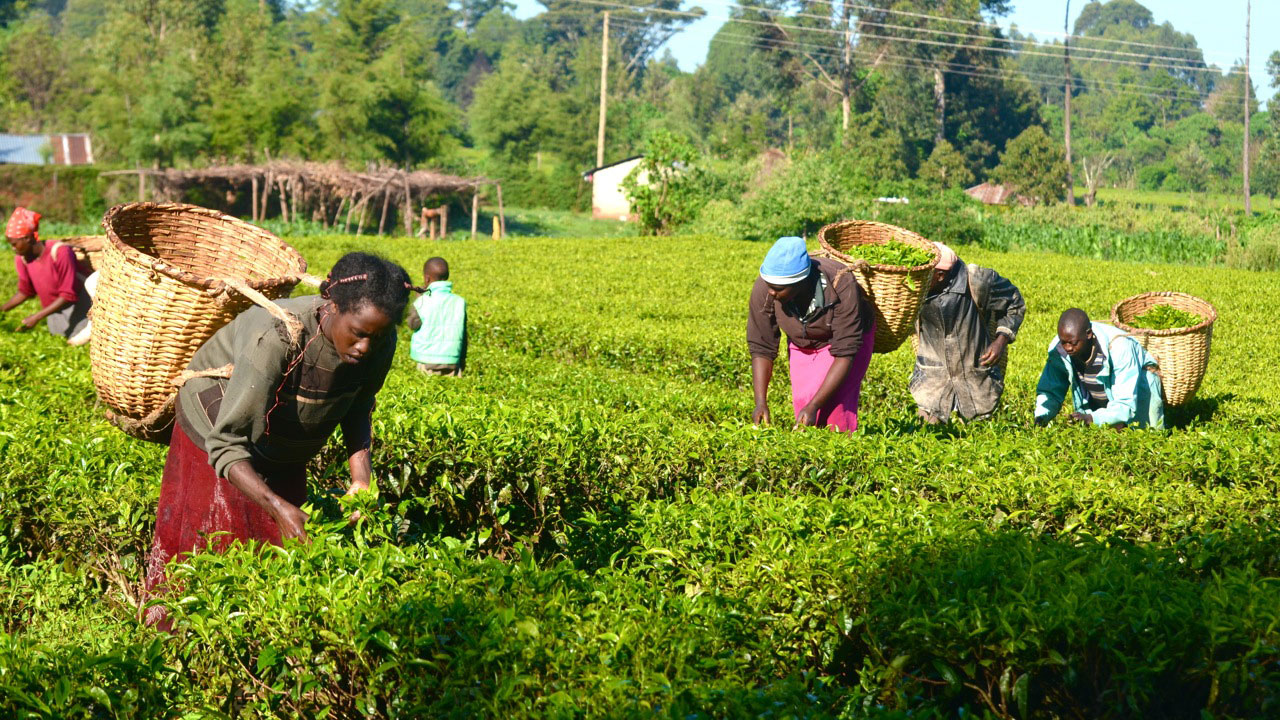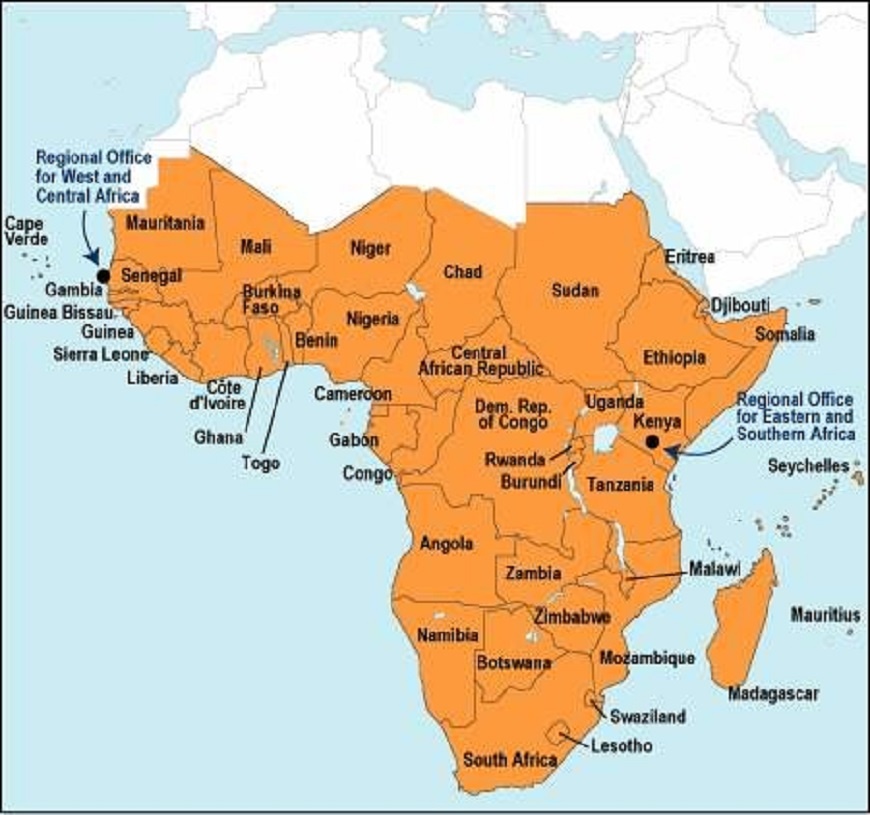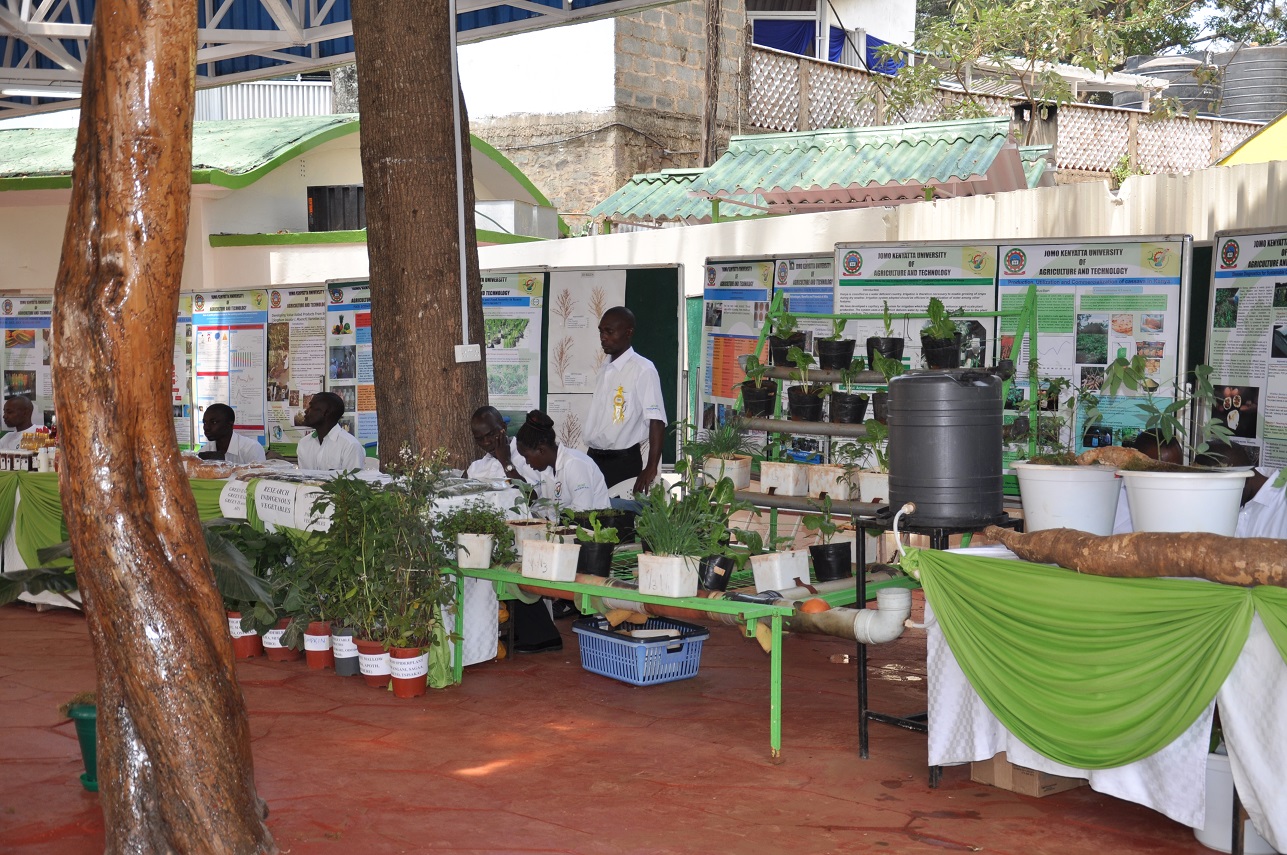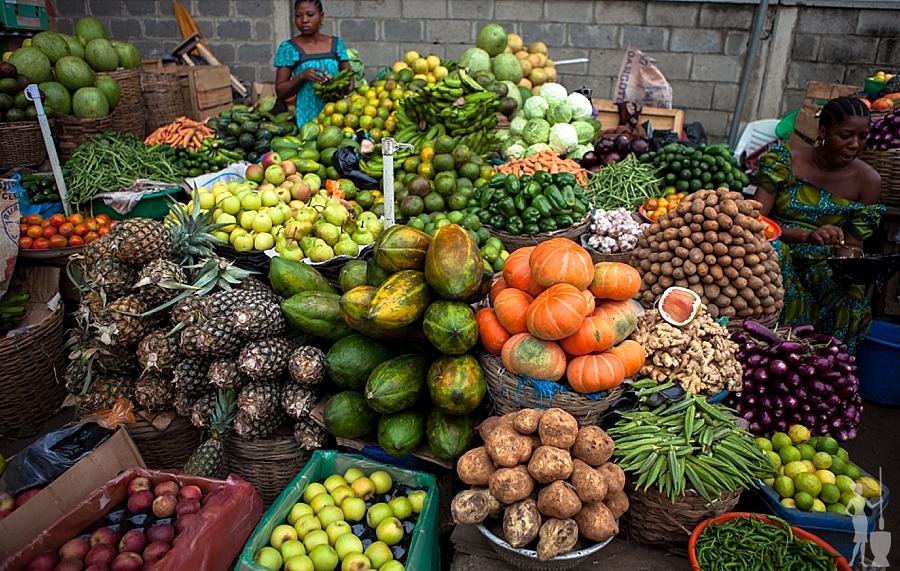Economy
Nigeria Open for Agribusiness—Ogbeh Tells Indian Investors
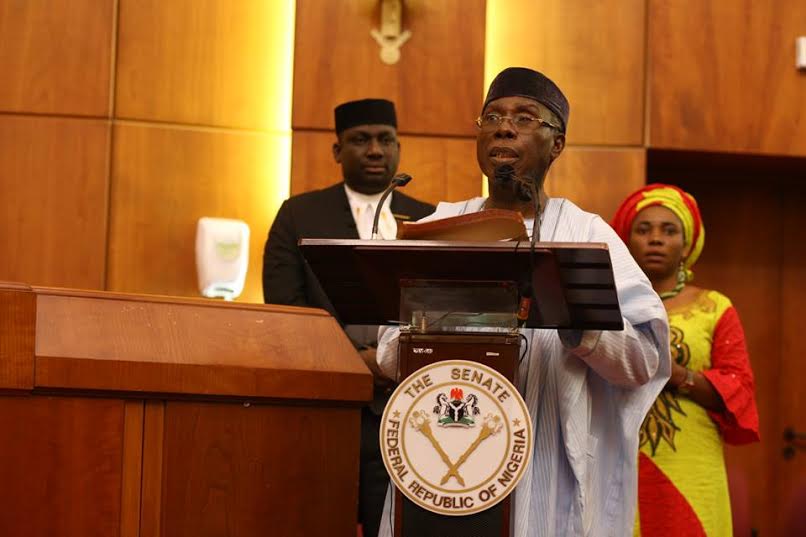
By Dipo Olowookere
Minister of Agriculture and Rural Development, Mr Audu Ogbeh, has urged Indian investors to consider coming to Nigeria for investment opportunities with a promise that they will not regret taking the decision.
Mr Ogbeh made this call while speaking during his tour to the Asian nation to explore new partnerships on agricultural development between Nigeria and India.
While at the Jute Mills Association of India, the Minister declared that Nigeria was open for Agribusiness, with incentives for investors, noting that with the Africa’s largest economy’s increased He discussed collaborations for Nigeria’s large scale cultivation of Jute and Kenaf; and the adoption of jute bags for packaging agricultural produce in line with food safety standards and global best practices.
He, therefore, invited the Indian Jute Mills to seize the huge opportunity in the Nigerian market; and invest in jute bag manufacturing in Nigeria.
The Minister emphasized that non-biodegradable packaging material such as polypropylene is not safe for our food and the environment, advocating the use of jute packaging which are carbon neutral and biodegradable.
Mr Ogbeh described India’s resilience in developing its agricultural sector especially the giant strides recorded in its dairy sector as an inspiration to Nigeria, adding that If India could do it, Nigeria can do it too.
During his visit, the Minister was taken to the Gujarat Co-operative Milk Marketing Federation, which has for decades driven the development of India’s dairy sector, using latest techniques of animal husbandry to empower 3.5 million dairy farmers in 18,000 villages through the Amul milk brand.
He was later taken on a guided tour of Amul Milk Factory, India’s largest dairy production factory and Asia’s largest milk producer.
Mr Ogbeh also undertook a tour of the Gujarat Industrial Development Area where he looked at technology transfer in small-scale processing machines designed for smallholder farmers such as semi-automated cashew shelling machines.
His tour of Gujarat Industrial Development Area of small scale cashew projects and India’s largest milk processing factory was part of an understudy of India’s Agric co-operative models ahead of the implementation of the Livelihood Improvement Family Enterprise – LIFE programme, which aims to empower rural youth and women in Nigeria.
In Calcutta, the Minister visited Wellington Jute Mill, the first Jute mill in Asia established by James Finlay & Co in 1873 and now owned by Ai Champdany Industries Ltd. At full capacity, the mill produces 120 Metric tons per day and employs 3,000 workers. The Minister described the age-long expertise of the factory as an invaluable experience from which Nigeria can learn and gain a lot.
A delegation of the National Seeds Corporation of India also held a meeting with the Minister in New Delhi as he wrapped up his official visit to India. Partnering with Nigeria’s National Seeds Council to developed improved seed varieties for increased agricultural productivity was top on the agenda.
Business Post gathered that when the Minister arrived India, he was received by the Indian Minister of Agriculture and Farmers’ Welfare, Mr Radha Mohan Singh; the Nigerian High Commissioner to India, Mr Chris Eze; and some Agribusiness investors in New Delhi.
Mr Singh described Nigeria as India’s largest trading partner in Africa and disclosed that in 2015, India had announced concessional loans of $10 billion to African countries.
He added that recently, India increased training slots under the Indian Technical and Economic Cooperation – ITEC Programme covering short-term training programmes in agriculture and allied sectors from 200 slots to 310 slots annually to Nigeria.
Economy
LIRS Urges Taxpayers to File Annual Returns Ahead of Deadline

By Modupe Gbadeyanka
All individual taxpayers in Lagos State have been advised to file their annual tax returns ahead of the March 31 deadline.
This appeal was made by the Lagos State Internal Revenue Service (LIRS) in a statement issued by its Head of Corporate Communications, Mrs Monsurat Amasa-Oyelude.
The notice quoted the chairman of LIRS, Mr Ayodele Subair, as saying that timely filing remains both a constitutional and statutory obligation as well as a civic responsibility.
The statutory filing requirement applies to all taxable persons, including self-employed individuals, business owners, professionals, persons in the informal sector, and employees under the Pay-As-You-Earn (PAYE) scheme.
In accordance with Section 24(f) of the 1999 Constitution of the Federal Republic of Nigeria, Sections 13 &14(3) of the Nigeria Tax Administration Act 2025 (NTAA), every individual with taxable income is required to submit a true and correct return of total income from all sources for the preceding year (January 1 to December 31, 2025) within 90 days of the commencement of a new assessment year.
“Filing of annual tax returns is not optional. It is a legal requirement under the Nigeria Tax Administration Act 2025. We encourage all Lagos residents earning taxable income to file early and accurately.
“Early and accurate filing not only ensures full adherence with statutory requirements, but supports effective monitoring and forecasting, which are critical to Lagos State’s fiscal planning and long-term sustainability,” Mr Subair stated.
He further noted that failure to file returns by the statutory deadline attracts administrative penalties, interest, and other enforcement measures as prescribed by law.
To enhance convenience and efficiency, all individual tax returns must be submitted electronically via the LIRS eTax portal at https://etax.lirs.net. The platform enables taxpayers to register, file returns, upload supporting documents, and manage their tax profiles securely from anywhere.
In keeping with global best practices, Mr Subair reiterated that LIRS continues to prioritise digital tax administration and taxpayer support services. He affirmed that the LIRS eTax platform is secure and accessible worldwide. Taxpayers requiring assistance may visit any of the LIRS offices or other channels.
Economy
NNPC Targets 230% LPG Supply Surge to 5MTPA Under Gas Master Plan 2026

By Adedapo Adesanya
The Nigerian National Petroleum Company (NNPC) Limited has said the Gas Master Plan 2026 targets over 230 per cent scale-up of Liquefied Petroleum Gas (LPG) supply from 1.5 million tonnes per annum (MTPA) to 5 MTPA this year.
The Executive Vice President for Gas, Power and New Energy at NNPC, Mr Olalekan Ogunleye, unveiled the strategic direction of the NNPC Gas Master Plan 2026, outlining an aggressive expansion drive to position Nigeria as a regional and global gas powerhouse.
Mr Ogunleye delivered the keynote address at the 2026 Lagos Energy Week, organised by the Society of Petroleum Engineers (SPE), where he detailed plans to accelerate gas development, deepen infrastructure and significantly scale domestic supply.
According to him, the Gas Master Plan targets a scale-up of LPG or cooking gas supply from 1.5 MTPA to 5 MTPA, alongside expanded feedstock for Mini-LNG and Compressed Natural Gas (CNG) projects.
“The NNPC Gas Master Plan 2026 is a blueprint to unlock Nigeria’s vast gas potential and translate it into tangible economic value,” Mr Ogunleye said.
He added that the strategy would also drive exponential growth in Gas-Based Industries, GBIs, strengthening local manufacturing, fertiliser production and power generation.
“Our renewed focus is on turning abundant gas resources into inclusive economic growth and improved quality of life for Nigerians,” he stated.
Mr Ogunleye said the plan aligns with the Federal Government’s Decade of Gas initiative and the presidential production targets of achieving 10 billion cubic feet per day by 2027 and 12 BCF/D by 2030.
Industry leaders at the event, including executives from Chevron Corporation, Esso Exploration and Production Nigeria Limited, Midwestern Oil and Gas Company Limited, Abuja Gas Processing Company and Shell Nigeria Gas, commended the plan and praised Ogunleye’s leadership in driving implementation excellence.
The new blueprint signals NNPC’s determination to anchor Nigeria’s energy transition on gas, leveraging infrastructure expansion and domestic utilisation to consolidate the country’s status as Africa’s largest gas reserve holder.
Economy
Shettima Blames CBN’s FX Intervention for Naira Depreciation

By Adedapo Adesanya
Vice President Kashim Shettima has attributed the Naira’s recent depreciation to the intervention of the Central Bank of Nigeria (CBN) in the foreign exchange (FX) market, stating that the currency could have strengthened to around N1,000 per Dollar within weeks if the apex bank had allowed market forces to prevail.
The local currency has dropped over N8.37 on the Dollar in the last week, as it closed at N1,355.37/$1 on Tuesday at the Nigerian Autonomous Foreign Exchange Market (NAFEM), after it went on a spree late last month and into the early weeks of February.
However, speaking on Tuesday at the Progressive Governors’ Forum (PGF), Renewed Hope Ambassadors Strategic Summit in Abuja, the Nigerian VP said the intervention was to ensure stability.
“In fact, if not for the interventions by the Central Bank of Nigeria yesterday, the 1,000 Naira to a Dollar we are going to attain in weeks, not in months. But for the purpose of market stability, the CBN generously intervened yesterday.
“So, for some of my friends, especially one of our party leaders who takes delight in stockpiling dollars, it is a wake-up call,” the vice president said.
He was alluding to CBN buying US Dollars from the market to slow down the rapid rise of the Naira.
Latest information showed that last week, the apex bank bought about $189.80 million to reduce excess Dollar supply and control how fast the Naira was gaining value.
The move was aimed at preventing foreign portfolio investors from exiting Nigeria’s fixed-income market, as large-scale sell-offs could heighten demand for US Dollars, intensify capital flight, and exert further pressure on the exchange rate.
Amid this, speaking after the 304th meeting of the monetary policy committee (MPC) of the CBN on Tuesday, Governor of the central bank, Mr Yemi Cardoso, said Nigeria’s gross external reserves have risen to $50.45 billion, the highest level in 13 years.
This strengthens the country’s foreign exchange buffers, enhances the apex bank’s capacity to defend the Naira when needed, and boosts investor confidence in the stability of the Nigerian FX market.
-

 Feature/OPED6 years ago
Feature/OPED6 years agoDavos was Different this year
-
Travel/Tourism10 years ago
Lagos Seals Western Lodge Hotel In Ikorodu
-

 Showbiz3 years ago
Showbiz3 years agoEstranged Lover Releases Videos of Empress Njamah Bathing
-

 Banking8 years ago
Banking8 years agoSort Codes of GTBank Branches in Nigeria
-

 Economy3 years ago
Economy3 years agoSubsidy Removal: CNG at N130 Per Litre Cheaper Than Petrol—IPMAN
-

 Banking3 years ago
Banking3 years agoSort Codes of UBA Branches in Nigeria
-

 Banking3 years ago
Banking3 years agoFirst Bank Announces Planned Downtime
-

 Sports3 years ago
Sports3 years agoHighest Paid Nigerian Footballer – How Much Do Nigerian Footballers Earn



